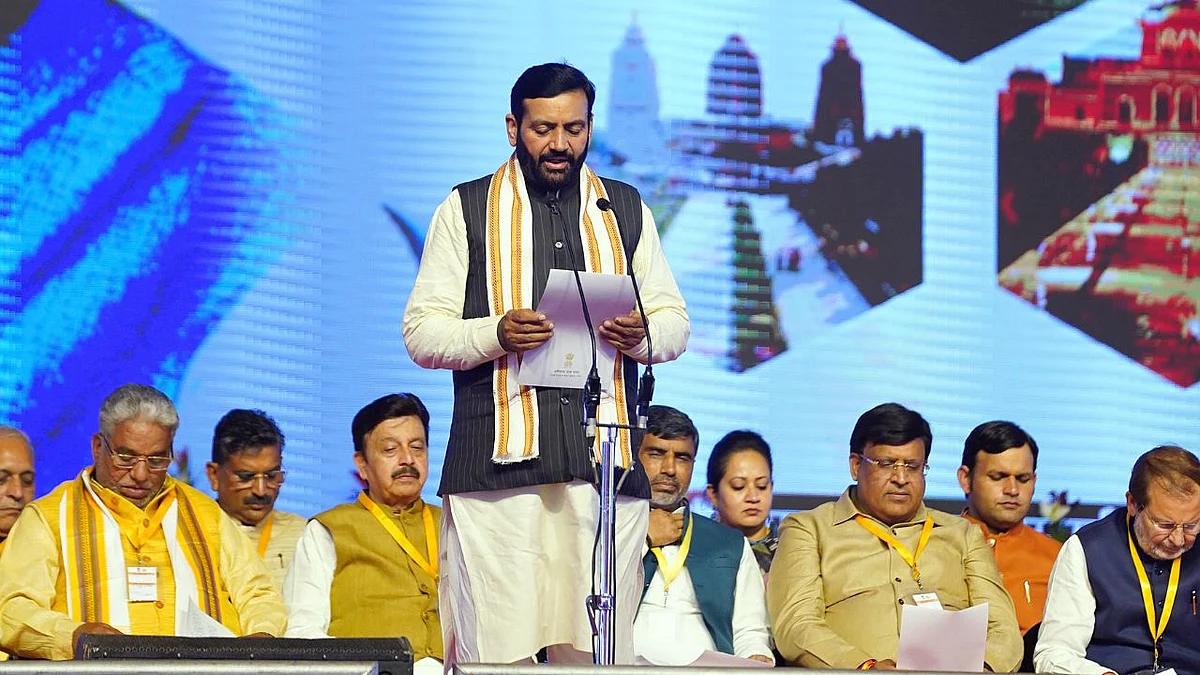Guwahati, October 17: Opposition parties in Assam, including the Congress and Assam Jatiya Parishad (AJP), have welcomed the Supreme Court's verdict on Thursday, which upheld the validity of Section 6A of the Citizenship Act. This landmark decision resolved the prolonged debate over the cut-off year for detecting and deporting illegal immigrants, affirming that the date remains March 24, 1971, as established under the Assam Accord.
The verdict reinforces the legal framework for addressing the issue of illegal immigration in Assam and aligns with the provisions of the historic Assam Accord, 1985, which was signed to bring peace to the state following years of agitation. The opposition parties have hailed the judgment as a victory for the state's integrity and a step forward in resolving the sensitive immigration issue.
Reacting to the verdict, opposition leader Debabrata Saikia described it as a "historic" moment, stating that it finally resolves the long-standing debate over the cut-off date for the detection and deportation of illegal foreigners in Assam. Saikia emphasized that the ruling reaffirms the March 24, 1971, cut-off date established by the Assam Accord. Saikia appreciated the Congress government’s role in addressing the issue of illegal immigration in Assam, especially under the leadership of former Prime Minister Rajiv Gandhi.
APCC president Bhupen Kumar Borah emphasized the significance of the Supreme Court's reaffirmation of the Assam Accord in addressing illegal immigration. He stated that the court's decision serves as a reminder of Assam's responsibility to uphold the terms of the Accord, which mandates that all individuals who entered the state illegally after March 24, 1971, must be identified and deported.
Following the Supreme Court's verdict, Congress MP Gaurav Gogoi took to social media platform X (formerly Twitter) to express his respect for the ruling. He characterized the Assam Accord as a "historic accord" that played a crucial role in restoring peace to Assam after years of political unrest and agitation. Gogoi commended former Prime Minister Rajiv Gandhi for his willingness to engage with student leaders during the Accord's negotiations, despite political differences.
In contrast, Gogoi criticized the current political climate under the BJP government, highlighting how the ruling party labels protestors as "anti-nationals" or "Khalistanis." He specifically called out Prime Minister Narendra Modi, accusing him of ignoring pressing issues in states like Manipur, where a crisis is ongoing, and stating that Modi "pretends as if the state doesn’t exist." This criticism underscores the perceived disconnect between the central government and regional issues affecting various states.
The All India United Democratic Front (AIUDF) marked the SC's decision with a celebratory cake-cutting ceremony at their office. Party MLA Aminul Islam expressed his satisfaction with the ruling, describing it as a victory for the Assam Accord and a significant moment for Assam.
In his statement, Islam emphasized that this decision would bring clarity and resolve long-standing debates surrounding the cut-off year for the detection and deportation of illegal foreigners. He hoped the verdict would put an end to any future political manipulation over the issue.
Islam also highlighted that the ruling would positively impact the ongoing National Register of Citizens (NRC) process and the handling of D-voter cases, suggesting that these procedures would now proceed more smoothly, ensuring justice and fair outcomes for the people of Assam.
Raijor Dal chief and MLA Akhil Gogoi welcomed the Supreme Court's verdict upholding Section 6A of the Citizenship Act, stressing that it reaffirms the non-applicability of the Citizenship Amendment Act (CAA) in Assam. In his reaction, Gogoi highlighted that the decision strengthens the Assam Accord and clarifies the cut-off date of March 24, 1971, for the detection and deportation of illegal immigrants in the state.
Gogoi also emphasized that the verdict holds the government accountable for taking effective action to deport illegal immigrants who entered Assam after 1971, as per the provisions of the Assam Accord. He called on the government to prioritize the enforcement of this decision and ensure that the influx issue is addressed in a manner that upholds Assam's demographic and cultural integrity.
The Assam Jatiya Parishad (AJP) has appreciated the SC ruling and said the verdict reaffirms the Assam Accord's cut-off year for citizenship as 1971, and demonstrates the BJP's misleading stance on deporting foreigners.
The verdict also nullifies the Citizenship Amendment Act, making it an unconstitutional act. The AJP calls for the government to take action.
in a press statement, AJP president Lurinjyoti Gogoi and general secretary, Jagadish Bhuyan described the verdict as realistic, timely, and farsighted.
Referring to the ruling’s implication for the Citizenship Amendment Act (CAA), Gogoi and Bhuyan noted, "The court has made it clear that anyone who entered Assam illegally after March 24, 1971, is an illegal immigrant. This clearly nullifies the legal validity of the CAA. In essence, the court has re-established that the CAA is unconstitutional, and repealing it has now become a duty."
The Assam Anuchuchita Jati Yuba Chatra Parishad (AJYCP), a prominent student organization, also welcomed the Supreme Court's verdict upholding Section 6A of the Citizenship Act. In their reaction, AJYCP hailed the decision as a victory for Assam and the preservation of the state's demographic balance.

Following the verdict, AJYCP went a step further by demanding the government roll back the Citizenship Amendment Act (CAA). The organization argued that while the Supreme Court's ruling affirms the Assam Accord's cut-off date for the detection and deportation of illegal foreigners (March 24, 1971), the CAA contradicts this by allowing citizenship for certain migrants who arrived after the cut-off date. AJYCP views the CAA as undermining the essence of the Assam Accord and posing a threat to the indigenous population of Assam.









